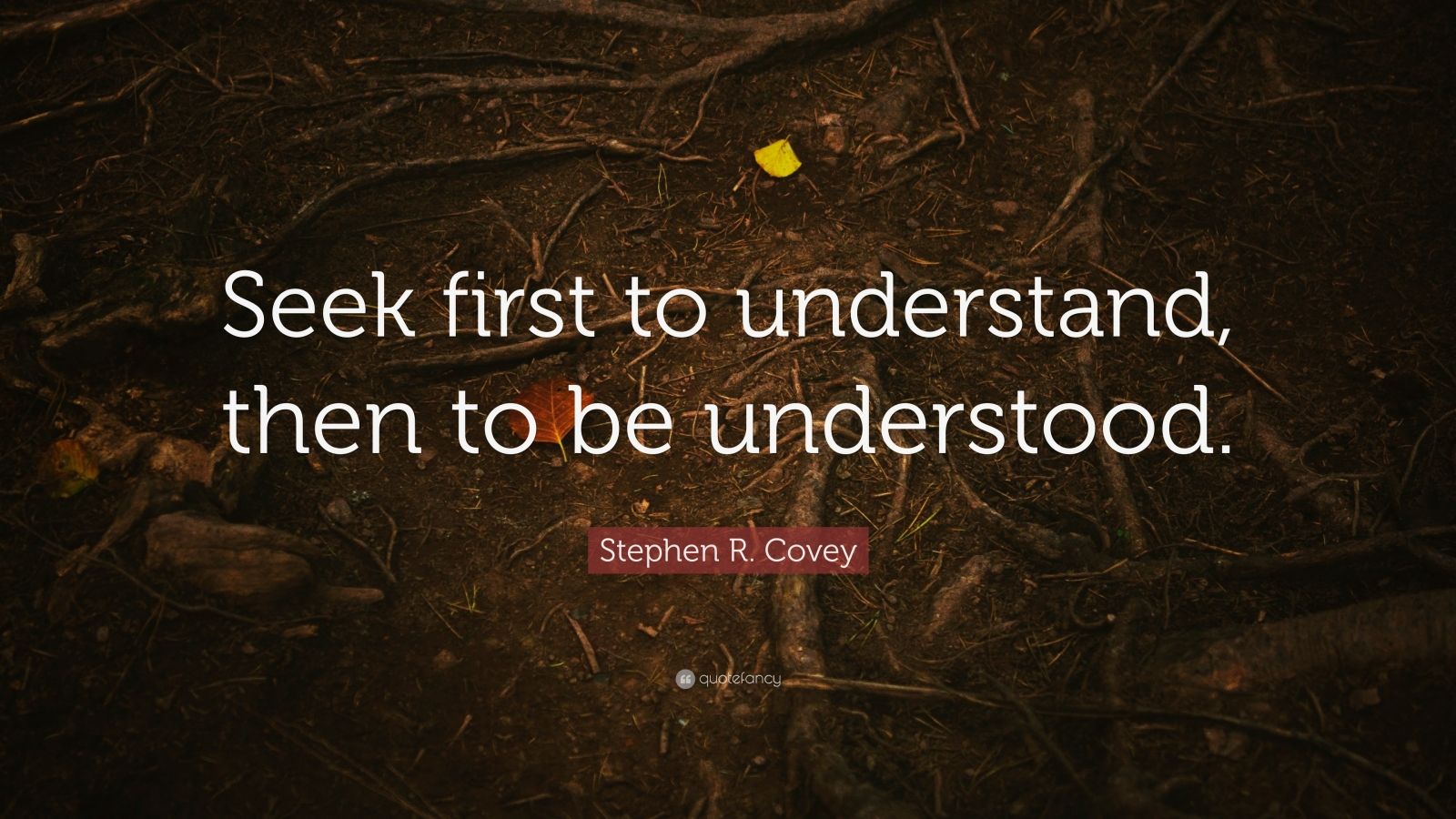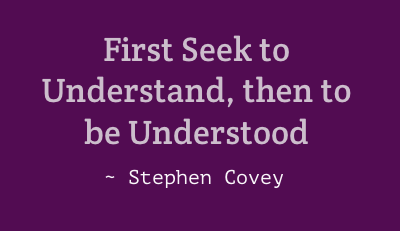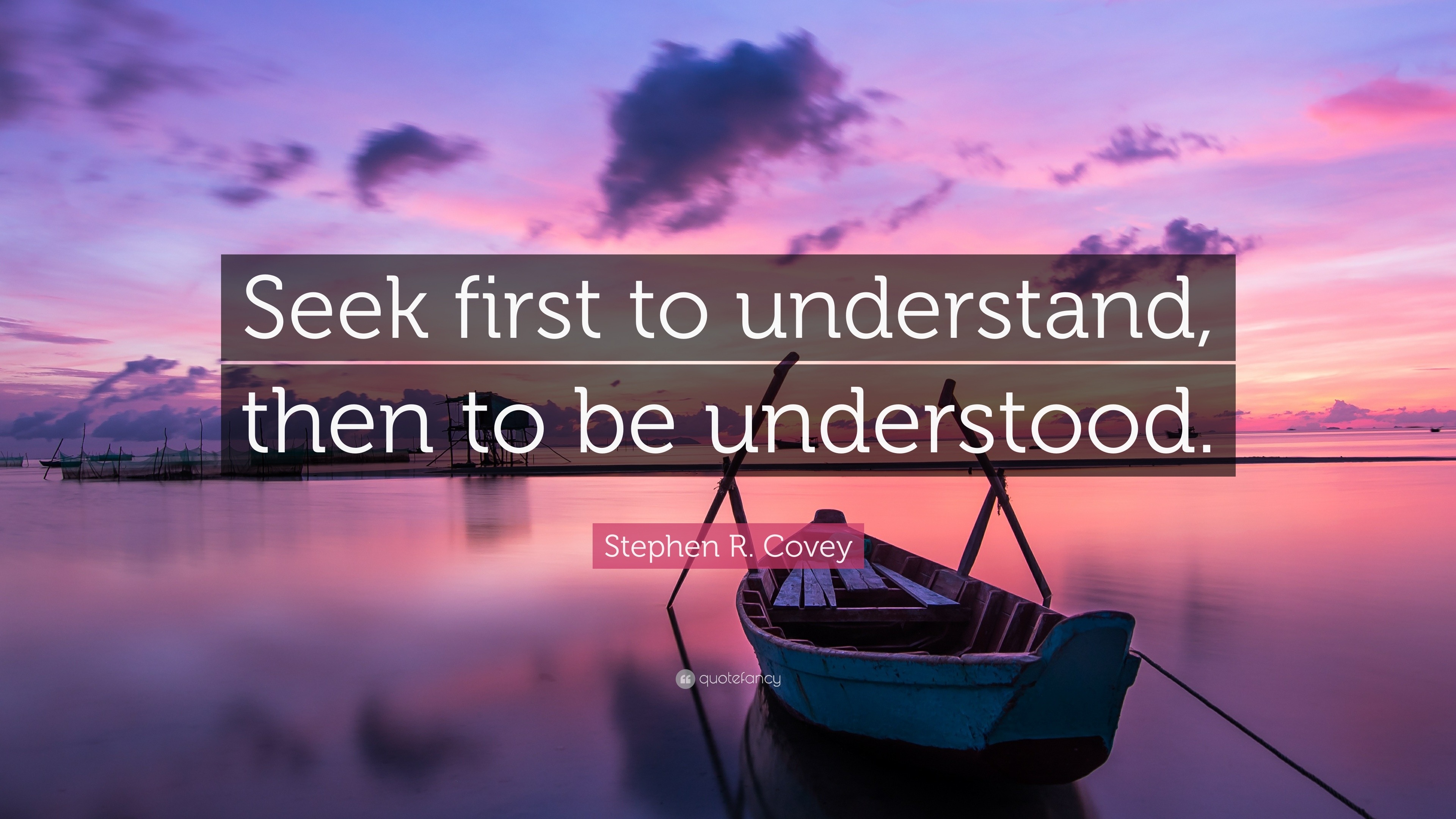
Recently, after implementing this habit, it’s so easy to see why people end up in arguments so quickly.

You can now explain yourself, and they’re most likely going to give you the same respect you gave them! Once you understand their point, then you have the opportunity to think about what their point is, and decide whether you agree or disagree. That is exactly why listening first is so powerful. We, as humans, have a desire to feel important. You can find further application suggestions in Covey’s original book: The 7 habits of highly effective people: powerful lesson in personal change.All people want to be heard, be seen, and be understood. Look for emotions that are being communicated, but that may not come across in words alone. The next time you have an opportunity to watch people communicate, cover your ears for a few minutes and just watch. Seeking to understand requires consideration. In Habit 4, Covey defines “maturity” as the balance between courage and consideration (c.f.

And being influenceable is the key to influencing others.” This is why habits 1, 2 and 3 are so foundational: because they us allow us to remain centred and aware of ourselves, therefore handling vulnerability caused by an external source with confidence.īeing understood is equally important in reaching Win/Win solutions. “Because you really listen, you become influenceable. Seeing the world the way other people see it allows us to understand how they feel.Īccording to Covey, it takes a great deal of security to go into a deep listening experience because we open ourselves up to be influenced. Empathic listening involves getting inside another person’s frame of reference, with the intent of true understanding. Very few of us ever practice listening on the fifth level, the highest form of listening: the empathic listening level.

“Comparatively few people have had any training in listening at all.” He explains that seeking to first understand involves a very deep paradigm shift: we typically seek first to be understood.
#Seek first to understand how to#
In comparison the many hours spent learning how to do the first three, the last type of communication has been neglected, says Covey. There are four basic types of communication: The author draws our attention to a general tendency to rush into other people’s issues and try to fix them by giving advice, often failing to “take time to diagnose, to really, deeply understand the problem first.” Habit 5 shows us how we can cooperatively deal with situations that arise within Win/Win situations when we’re trying to work together, taking into account our differences. Habit 5: Seek First To Understand, Then To Be UnderstoodĬovey tells us early on in this chapter that “even if (and especially when) another person is not coming from a Win/Win paradigm, seek first to understand”. It involves asking ourselves not only what we want from a given situation but also what the other party wants. The Fifth habit of Stephen Covey’s “ The 7 Habits of Highly Effective People”, “Seek first to understand, then to be understood”, is also the first step in the process of last weeks’ 4 th habit: “Think Win/Win”.


 0 kommentar(er)
0 kommentar(er)
